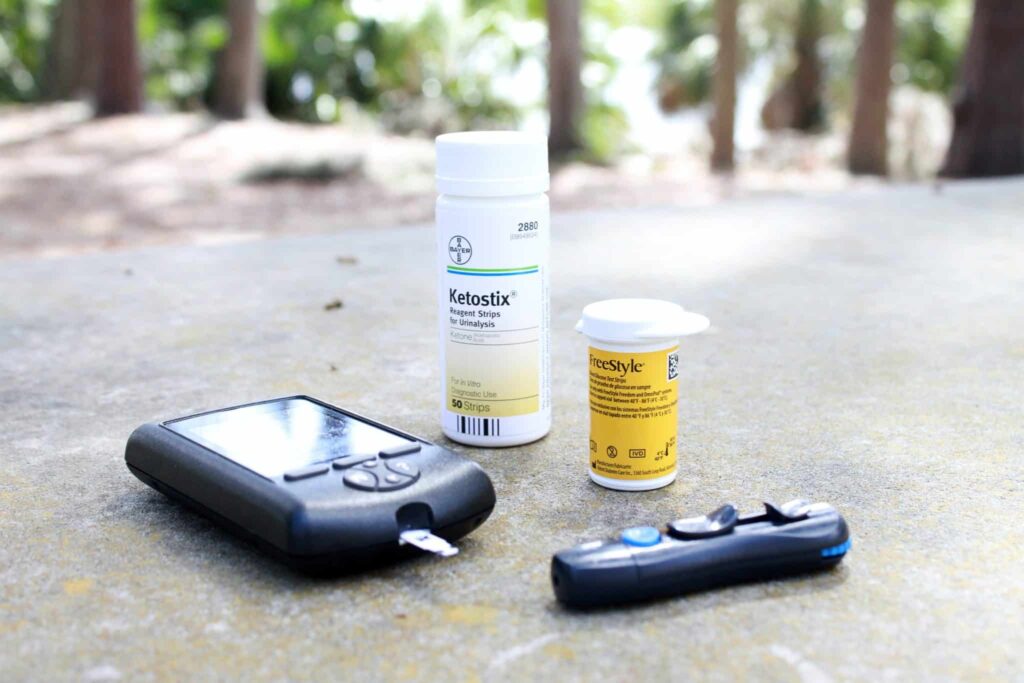Chronic Hope: Parenting a Child with a Chronic Disease
Subscribe to the Joni and Friends Ministry Podcast
Bonnie O’Neil knows the heartache and struggle that can come with parenting a child with a chronic illness.
After growing up in the shadow of type 1 diabetes (her brother died of the disease just before she was born), Bonnie almost despaired when her own five-year-old son Austin got his type 1 diabetes diagnosis.

Bonnie joins the podcast to share a vision for navigating chronic disease with strength, resilience, and loving self-sacrifice, all by God’s grace. She reveals the mistakes and missteps that led her to Christ-centered principles and attitudes for overcoming the daily stressors of living with a child’s chronic condition.
What is type 1 diabetes? How does it affect daily life?
Type 1 diabetes is an autoimmune disease that can onset as early as childhood. For a person with type 1 diabetes, the body doesn’t make the hormones needed (including insulin) to regulate blood sugar. There’s no cure for type 1 diabetes and you don’t outgrow it. It’s a chronic condition that requires daily management: administering insulin, monitoring blood sugar, and modulating food intake and exercise to manually control blood sugar levels.
“I’ve heard type 1 diabetes described by an endocrinologist as the only disease out there where the primary caregiver is responsible for multiple lifesaving decisions on a daily basis.”
Bonnie

It’s been estimated that a person living with diabetes (or a caregiver) has to make up to 180 health-related decisions per day about food choices, exercise, sleep, and other factors that impact blood sugar levels.
And as children with type 1 diabetes grow up, they have to gradually take over their own healthcare decisions and management.
A Mother’s Crisis of Faith
When Austin got diagnosed with type 1 diabetes, Bonnie was already discouraged and run down. The diagnosis sent her into an existential tailspin and crisis of faith. She couldn’t come to terms with God being good and allowing her child to suffer from the chronic illness that had taken her brother’s life. Bonnie told God, “If this is the best you can do for me, go away.”
Distancing herself from God, Bonnie experienced what she describes as terrifying inner quiet and darkness—God giving her space. She wrestled with a fundamental question:
“Will I surrender—and entrust my child—to God?”
Ultimately the support of fellow believers and prayer unlocked Bonnie’s spirit. She learned to trust God’s love for Austin and her other children, and accepted God’s plan for her family.
“If you’re a parent with a child with a disability, or you’re going through an unwanted divorce, or you’re going through infertility or singleness or cancer or a new disability, we all come to God with good and right desires, and hopeful expectations of what our life could be.
There is a point where, yes, our life and what we pictured is really different than what God is allowing for our good. There comes a time where we must wrestle with him. We have to grasp that, without a doubt, God is good, and this is hard. This is not what I would’ve chosen, but he is real.”
Bonnie
How can churches help parents cope with a child’s chronic illness?
In Bonnie’s experience churches are best equipped to reach people on the early end of their spiritual journeys.
But when it comes to processing faith struggles and pain, she has sought the help of a spiritual director. As Bonnie put it,
“Working with a spiritual director helps you see where God is at work in your life. A spiritual director will help you delve into deep, painful parts of life and revisit them with God.”

Some churches have spiritual directors on staff, but many do not. For churches without spiritual directors, Bonnie encourages staff and members to develop deeper awareness of one another’s wellbeing.
“The church needs to be proactive about asking people what they need. We can ask. ‘How can we make this work?’”
Bonnie
This proactive care is particularly necessary for parents raising a child with a chronic illness or disability. Perhaps a child with type-1 diabetes needs to be able to attend Vacation Bible School part-time and have a volunteer assist with checking blood sugar levels. Maybe a family needs a one-on-one buddy to accompany their child with a disability to Sunday school so the parents can attend worship together…
Releasing Guilt
Coping with the chronic illness of a child can be exhausting. Bonnie learned that high guilt and low joy can make the burden heavier. One simple practice she learned: “just be good to yourself.”
For Bonnie, being good to herself started with letting go of guilt—thoughts that her DNA caused her son’s suffering, or that if she had done something differently, type-1 diabetes wouldn’t be plaguing her family. Sometimes releasing guilt means acknowledging the holy work that a parent does simply in caring for a child—and letting that work be enough some days (instead of pushing to get through every item on a to-do list!).
Finally, Bonnie learned to grant herself permission to experience a full range of feelings, including grief.
“We have grief that we bear, and this was not the life that we expected for our children, let alone for us. Just pretending we don’t have a right to our feelings doesn’t make them go away. So it’s really important to give yourself permission to feel what you feel.
There’s nothing wrong with feelings. It’s how we attend to them that matters. So notice what you’re feeling, name it, and attend to it. Don’t be afraid to go deeper. Sometimes the only way out of the darkness is to go deeper into it and look around.”
Bonnie

Going into the dark parts of our lives can be scary.
Bonnie encourages people to do this work with the help of a spiritual director or believing friend. Of course, God goes with us into the darkness too.
As Deuteronomy 31:6 says: “Be strong and courageous. Do not be afraid or terrified because of them, for the LORD your God goes with you; he will never leave you nor forsake you.”
Restoring Joy
In families living with chronic illness and disability, relationships can easily get strained. Spouses don’t have time for one another; siblings feel neglected or overshadowed.
Joy can get lost in stress. Bonnie’s oldest son was eight when Austin got diagnosed with diabetes.
“He remembered life being very different beforehand, and suddenly all of mama’s attention went to his younger brother.”
Bonnie

She realized she needed to set aside time for her older son—taking him out for ice cream or a trip to a toy store.
For spouses handling caregiving responsibilities, difficulties, and grief that come with chronic conditions, stress and resentments can snowball quickly. Bonnie emphasizes the need for forgiveness, solidarity, and quality time together—these ingredients, with God’s grace, help to mitigate stress and restore joy.
With her children now grown, Bonnie has reflected on her family’s experience with chronic illness. Her book, Chronic Hope: Raising a Child with Chronic Illness with Grace, Courage, and Love, shares more of their story and biblical guidance for coping with chronic disease.
And for any weary parent struggling with a child’s disability or chronic illness, Bonnie has a word of encouragement:
“Don’t ever give up. Remember that this is not the end of your story if you are in that fiery trial that Peter talks about (in 1 Peter 1:6-7). So if you have been distressed by various trials, that’s proof of your faith being more precious than gold. So keep pressing into God!”
“In all this you greatly rejoice, though now for a little while you may have had to suffer grief in all kinds of trials. These have come so that the proven genuineness of your faith—of greater worth than gold, which perishes even though refined by fire—may result in praise, glory and honor when Jesus Christ is revealed.”
1 Peter 1:6-7

Read More from Bonnie
Are you hunting for hope in the hard places? Join Bonnie in discovering hope and joy in your journey.











